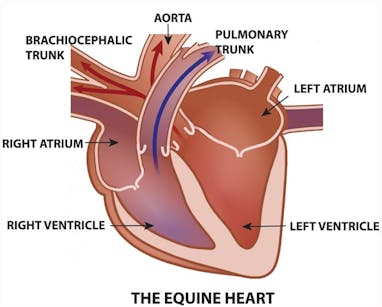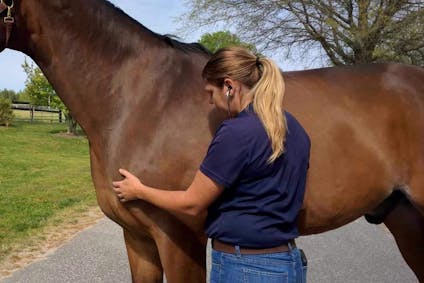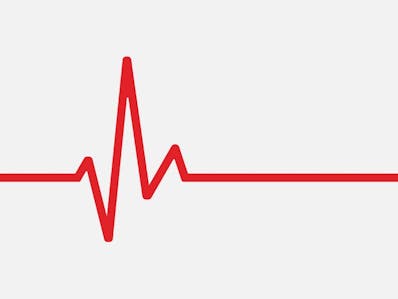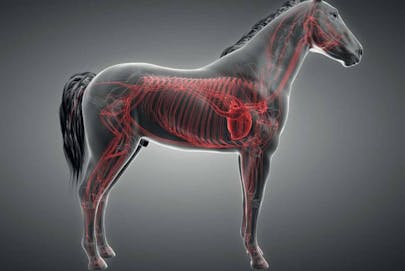A horse's heart is a remarkable organ that plays a vital role in circulating blood throughout the body. Here's some information about a horse's heart:
what is the average size of a horses heart?
The size of a horse's heart is relatively large compared to other domesticated animals. On average, an adult horse's heart can weigh around 4 to 10 pounds (1.8 to 4.5 kilograms).
Location...
The horse's heart is located in the chest cavity, slightly to the left side. It sits between the lungs, protected by the ribcage.
what is the function of the heart?
Like all mammalian hearts, the horse's heart is responsible for pumping blood to deliver oxygen and essential nutrients to the body's tissues and organs. Additionally, it helps remove waste products and carbon dioxide, which are then transported to the lungs for elimination.
the anatomy...
A horse's heart has four chambers: two atria (left and right) and two ventricles (left and right). The atria receive blood from various parts of the body, while the ventricles pump the blood out to the body. The heart's valves prevent backflow and ensure that blood flows in the correct direction.
what is the horses heart rate like?
A horse's heart rate varies depending on factors like age, fitness level, and activity. At rest, an adult horse's heart rate typically ranges from 28 to 44 beats per minute (bpm). During exercise, the heart rate can increase significantly, reaching up to 200 bpm in intense activities.
what adaptations does this organ have?
Horses are highly athletic animals, and their hearts have evolved to cope with the demands of their active lifestyle. Their hearts have a large stroke volume, meaning they can pump a significant amount of blood with each heartbeat, which helps provide oxygen to their muscles during exertion.
Heart Conditions...
Horses, like all animals, can be susceptible to various heart conditions. Some common equine heart issues include heart murmurs, arrhythmias (irregular heart rhythms), and valvular diseases. If a horse exhibits signs of respiratory distress, exercise intolerance, or other unusual symptoms, it's essential to consult with a veterinarian to assess the heart's health.
Listening to the Heart...
Veterinarians and equine professionals often use a stethoscope to listen to a horse's heart. This procedure, known as auscultation, helps them identify any irregularities in heart rhythm or detect murmurs.
Maintaining a horse's heart health is crucial for its overall well-being and performance. Proper nutrition, regular exercise, and veterinary check-ups are essential to ensure the heart functions optimally. If any heart-related issues are suspected, it's essential to seek professional veterinary care promptly
Heart information...







